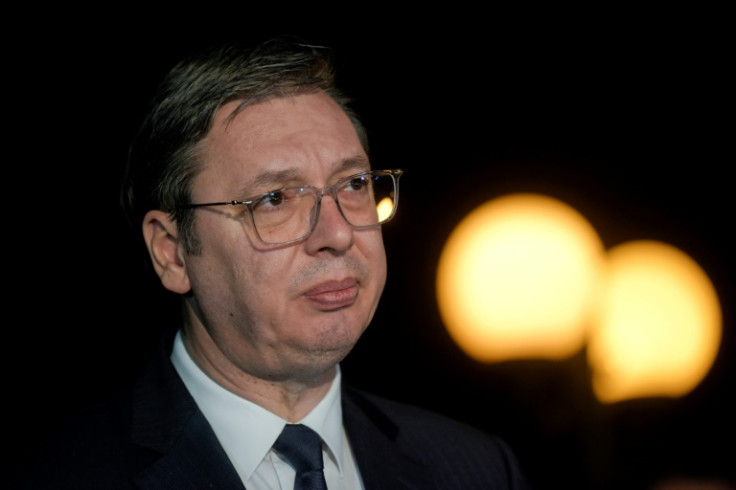Serbian President Vucic Steps Down As Head Of Ruling Party

Serbian President Aleksandar Vucic stepped down as the leader of his party on Saturday after more than a decade at the helm, but he is widely expected to remain the most powerful political figure in the Balkan country.
Vucic's Serbian Progressive Party (SNS) won parliamentary election by a landslide last year, but has been regularly accused of corruption, as well as recently coming under increased pressure from mass protests over two shootings.
The 53-year-old, who has served as SNS chief since 2012 and has held the position of either Serbia's president and prime minister since 2014, said that while he was stepping down as leader, he will not leave the party he helped found.
"Whatever you do, I will always be with you and by your side," Vucic told party members during a televised convention.
"I just think a slightly different approach is needed to unite a greater number of forces of those who want to fight for the victory of a patriotic, successful Serbia."
Vucic has already announced plans to form a nationwide movement that is planned to include prominent intellectuals, artists and other public figures, and is expected to gradually combine with the SNS.
According to analysts, Vucic is significantly more popular than his party, which is regularly the target of accusations of corruption, and a fresh coalition would help rebrand the side, potentially avoiding poor election results in the future.
"It's a way to overcome a crisis that could potentially brew inside the Serbian Progressive Party," Bojan Klacar, the head of the independent election monitor CESID, told AFP.
However, no longer being the party's leader does not spell Vucic's political retirement, Klacar added.
"By creating a new movement, he wants to secure himself another mandate in the office."
Defence Minister Milos Vucevic, the former mayor of Serbia's second largest city Novi Sad, was elected as the new president of the SNS party.
"I know how loyal he is to the party, but also the idea of an independent and prosperous Serbia," Vucic said.
Vucic's opponents accuse him of increasingly relying on autocratic measures to keep the opposition in disarray and media outlets and state institutions under his thumb.
His ruling party has also been under rising pressure over the last month, after back-to-back shootings triggered a mass movement against the government which brought tens of thousands of people onto the streets.
© Copyright AFP 2024. All rights reserved.





















